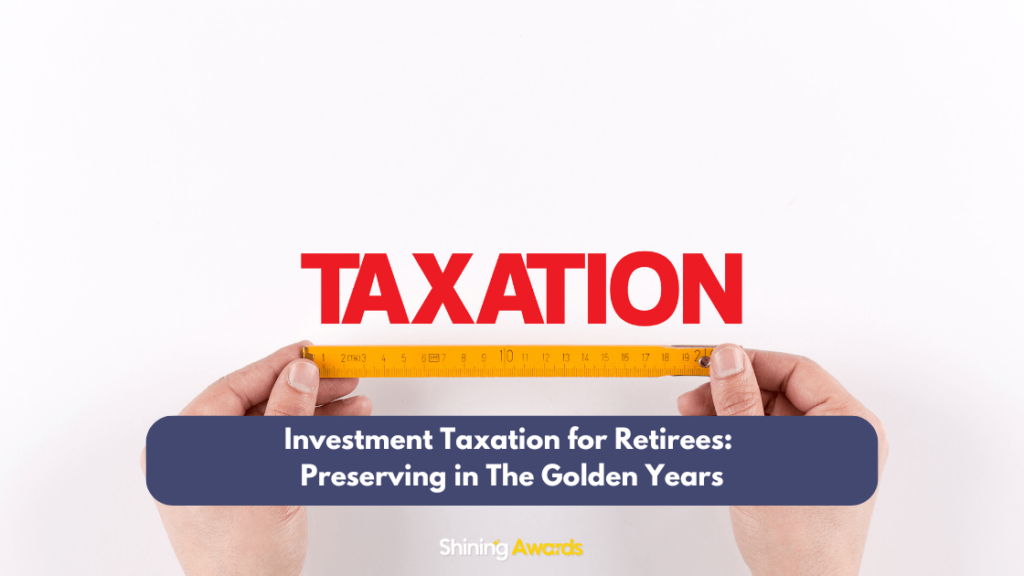Investment Taxation for Retirees: Preserving in The Golden Years
Investment Taxation for Retirees – Embark on a journey to safeguard your retirement nest egg through savvy tax planning. Discover the intricate yet vital world of investment taxation for retirees. From understanding tax implications to implementing strategic solutions, this article delves into key strategies to preserve wealth during the golden years. Create your account here if you are looking for a website that helps people learn about investments by connecting them with investment education companies that can help them receive the right information.
Investment Taxation for Retirees

Strategies for Tax-Efficient Investing in Retirement
Asset location and allocation techniques
Asset location and allocation techniques are fundamental to crafting a tax-efficient investment strategy for retirees. This approach involves strategically placing different types of assets across various accounts to optimize tax outcomes.
By allocating assets based on their tax treatment, retirees can minimize their overall tax liability and maximize after-tax returns. For example, assets with high expected returns and significant tax implications, such as taxable bonds or actively managed funds generating ordinary income, may be better suited for tax-advantaged accounts like traditional IRAs or 401(k)s.
On the other hand, investments with favorable tax treatment, such as municipal bonds or low turnover index funds, may be held in taxable brokerage accounts to take advantage of preferential tax rates on capital gains and qualified dividends.
By diversifying assets across taxable and tax-advantaged accounts strategically, retirees can optimize their overall tax efficiency while maintaining a well-balanced investment portfolio.
Managing withdrawals to minimize tax liability
Managing withdrawals to minimize tax liability is a critical aspect of retirement income planning. Retirees must carefully consider the timing and sequence of withdrawals from different types of retirement accounts to minimize their tax burden.
One effective strategy is to prioritize withdrawals from taxable accounts before tapping into tax-advantaged accounts like traditional IRAs or 401(k)s. By doing so, retirees can delay the taxation of retirement savings held in tax-deferred accounts, allowing them to continue growing tax-free for a longer period.
Additionally, retirees can strategically control their taxable income by adjusting the size and frequency of withdrawals to stay within favorable tax brackets. For example, spacing out withdrawals over multiple years or utilizing tax-efficient withdrawal methods like systematic withdrawals or partial Roth conversions can help minimize annual tax liabilities.
By implementing a thoughtful withdrawal strategy, retirees can optimize their after-tax income and preserve their retirement savings for the long term.
Tax-loss harvesting and rebalancing strategies
Tax-loss harvesting and rebalancing strategies are essential tools for maintaining tax efficiency in an investment portfolio. Tax-loss harvesting involves selling investments that have experienced losses to offset capital gains and reduce taxable income.
By strategically realizing losses, investors can minimize their tax liability without significantly altering their overall investment strategy. Additionally, rebalancing a portfolio periodically can help maintain optimal asset allocation and tax efficiency. For example, if certain asset classes have appreciated significantly, rebalancing involves selling a portion of those assets and reinvesting the proceeds into underperforming assets.
This not only ensures that the portfolio remains aligned with the investor’s risk tolerance and investment objectives but also allows for the realization of capital losses or gains in a tax-efficient manner. By incorporating tax-loss harvesting and rebalancing strategies into their investment approach, retirees can proactively manage their tax exposure and enhance their after-tax returns over time.
Estate Planning and Tax Considerations
Estate planning is a crucial aspect of financial management for retirees, encompassing various strategies to transfer wealth efficiently while minimizing tax liabilities. Understanding the intricate tax considerations associated with estate planning is paramount for retirees to preserve their assets for future generations.
One primary consideration in estate planning is the transfer of wealth to beneficiaries and the associated tax implications. Estate taxes, also known as inheritance taxes, may apply to estates above certain thresholds. By familiarizing themselves with these thresholds and exemptions, retirees can devise strategies to mitigate potential estate tax burdens. Utilizing trusts and gifting strategies can be effective ways to reduce the taxable value of an estate and maximize the amount passed on to heirs.
Trusts are versatile instruments commonly used in estate planning to manage and distribute assets according to specific instructions. By establishing trusts, retirees can protect assets from creditors, minimize estate taxes, and control the timing and manner of asset distribution to beneficiaries. Various types of trusts, such as revocable living trusts, irrevocable trusts, and charitable trusts, offer different advantages in terms of tax efficiency and asset protection.
Gifting is another strategy employed in estate planning to reduce the taxable value of an estate. Retirees can gift assets to their heirs during their lifetime, thereby reducing the size of their taxable estate. Annual gift tax exclusions allow individuals to gift a certain amount to each recipient without triggering gift tax consequences. Additionally, retirees can utilize lifetime gift exemptions to transfer larger sums of wealth tax-free, further optimizing their estate planning strategy.
Conclusion
Empower yourself with the knowledge to navigate investment taxation effectively in retirement. By implementing tax-efficient strategies, retirees can preserve their hard-earned savings and optimize their financial legacy for generations to come. Take charge of your financial future and embark confidently into retirement, knowing you’ve secured your nest egg.

 TRENDING
TRENDING